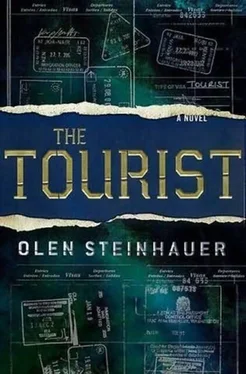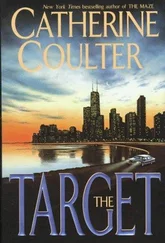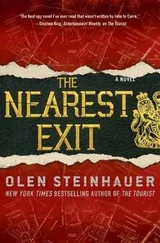"Three murders in a month-the Tiger, Yates, and Grainger. That's a bit much, even for a corrupt Company man."
"You can't seriously think he killed all of them."
"I'll have a better idea once I've spoken to him."
Fitzhugh ran his tongue over his teeth. "Tell you what, Janet. Give us another day alone with him. Day after tomorrow-Friday- I'll let you sit in on the conversation." He held up three stiff fingers. "Scout's honor."
Simmons considered that, as if she had a choice. "Day after tomorrow, then. But I want something now.”
“Like what?"
"Milo's file. Not the open one-that's useless. I want yours.”
“That'll take a little-"
"Now, Terence. I'm not giving you time to misplace it, or take out all the juicy stuff. If I'm waiting to talk to him, then I better have some interesting reading."
He pursed his lips. "There's no need to be aggressive about this. We both want the same thing. Someone kills one of my people, and I want him scratching concrete for the rest of his life."
"Glad we're agreed," she said, though gladness left no mark on her face. "I still want that file."
"Can you at least wait ten minutes?”
“I can do that."
"Wait in the lobby. I'll send it down."
"What about the wife?" she asked as she stood. "Tina. Have you questioned her?"
"Briefly in Austin, after Weaver made contact, but she knows nothing. We're not bothering her anymore; she's been through enough."
"I see." Without offering a handshake, she walked out, leaving Fitzhugh to watch her march in her lesbian slacks through the maze of cubicles.
He lifted the desk phone and typed 49, and after a doorman's military opening gambit-"Yes, sir" -he cut in: "Name.”
“Steven Norris, sir."
"Listen carefully, Steven Norris. Are you listening?”
“Uh, yes. Sir."
"If you ever send a goddamned Homelander upstairs again without clearing it with me first, you're out of here. You'll be guarding the front gate of the U.S. embassy in Baghdad wearing a George Bush T-shirt instead of body armor. Got it?"
She'd taken a room on the twenty-third floor of the Grand Hyatt, atop Grand Central Station. Like any room Janet Simmons worked in, it quickly became a mess. She despised hotel blankets, stripping them off immediately to make a pile at the bottom of the bed. To this, she added the extra pillows (one was more than enough for her), room service menus, the alphabetical book of guest services, and all the sundry extras that overflowed the bedside tables. Only then, finally cleared of distractions, could she sit on the bed, open her laptop, and start a new Word document to transcribe her thoughts.
Simmons didn't like Terence Fitzhugh. There was the irritating way his eyes measured her bustline, but that wasn't it. What she hated was his sympathetic frowns, as if everything she said was a piece of revelatory, disappointing news. It was pure Beltway theater. When she stormed his D.C. office after the murder of Angela Yates, he gave her that same kind of treatment, with an "I'm going to get right on top of this, Janet. Be assured."
She'd expected nothing, and so it was a shock when an envelope arrived the next afternoon at her office at 245 Murray Lane. A highly censored, anonymous surveillance report on Angela Yates. And there it was. At 11:38 p.m. Milo Weaver entered her apartment. Surveillance was paused (no reason given-in fact, there was no reason listed for the surveillance at all). By the time the cameras were on again, Weaver was gone. An estimated half hour later, Angela Yates died from barbiturates. A single window of opportunity, and there was Milo Weaver.
Later, at Disney World, she'd found a frightened but stubborn wife and a cute, sleepy kid, both puzzled by the sight of Simmons, Orbach, and the other two men waving pistols. But no Milo Weaver. Grainger, it turned out, had warned him off.
Then, a week ago, Tom Grainger came up dead in New Jersey. It was a strange scene. The outline of Grainger's corpse in the front yard was straightforward enough, but what about the three windows that had been broken from the outside? What about the unidentified blood at the foot of the stairs, just inside the front door? What about the seven bullets lodged in the stairs themselves-9mm, SIG Sauer? No one offered an explanation, though it was clear enough that a third person had been on the scene. Fitzhugh pretended to be baffled by the whole thing.
In Austin, Tina Weaver disappeared for three hours. When Rodger Samson questioned her, she admitted that Milo had wanted her and Stephanie to leave the country with him. She'd refused. He'd vanished again, and Janet had believed that she would never see Milo Weaver again. Then, that morning, she'd received the enlightening call from Matthew, Homeland's plant in what the CIA considered its ultra-secret Department of Tourism.
Why had Milo turned himself in?
She opened the manila envelope that Gloria Martinez had handed her, and began to read.
Born June 21, 1970, in Raleigh, North Carolina. Parents: Wilma and Theodore (Theo) Weaver. In October 1985, a Raleigh News & Observer clipping told her, "an accident occurred on 1-40 near the Morrisville exit when a drunk driver ran head-on into another car." The driver, David Paulson, was killed, as were the occupants of the second car, Wilma and Theodore Weaver of Cary. "They are survived by their son, Milo."
She typed the requisite facts into her Word document.
Though no documentary evidence backed it up, a report explained that Milo Weaver, at fifteen, moved into the St. Christopher Home for Boys in Oxford, North Carolina. The lack of documentation was excused by another newspaper clipping, circa 1989, reporting that a fire had destroyed the St. Christopher complex and all its records, one year after Milo left North Carolina behind.
By then, a scholarship had taken him to Lock Haven University, a tiny school in a sleepy Pennsylvania mountain town. A few pages charted an irregular student who, while never arrested, was suspected by local police as being "involved with drug-users and spends much time in the old house at the corner of West Church and Fourth where marijuana parties are a regular occurrence." He'd arrived at the school majoring in "undecided" but by the end of his first year had settled on international relations.
Despite its size, Lock Haven boasted the largest student exchange program on the East Coast. During his third year, in the fall of 1990, Milo arrived in Plymouth, England, to study at Marjon, the College of St. Mark and St. John. According to these early CIA reports, Milo Weaver quickly found a circle of friends, most from Brighton, who were involved in socialist politics. While calling themselves Labour, their true beliefs led more down the path of "ecoanarchism"-a term, Simmons noted, that wouldn't come into popular use for nearly another decade. An MI5 plant inside the group, working in cooperation with the CIA, reported that Weaver was ideal for an approach. "The ideals of the group are not his, but his desire to take part in something larger than himself predicates most of his endeavors. He has fluent Russian and excellent French."
The approach occurred during a weekend trip to London in late December, a month before Weaver was scheduled to return to Pennsylvania. The MI5 plant-"Abigail"-brought him to the Marquee Club on Charing Cross, where, slipping into a rented back room, he was introduced to the London head of station, who in the reports was referred to as "Stan."
The conversation must have been favorable, because a second meeting was arranged for three days later in Plymouth. Milo then dropped out of school and, lacking a UK visa, went underground with his environmental anarchist friends.
It was a strikingly last recruitment, which Simmons also noted in her Word document, but of that first job there was nothing else, and the file referred the researcher to File WT-2569-A91. Still, she knew Milo's role in the operation lasted only until March, because that was when he was put onto the CIA payroll and sent to Perquimans County, North Carolina, where, along the Albemarle Sound, he trained for four months at the Point, a Company school less well known than the Farm but just as accredited.
Читать дальше
Конец ознакомительного отрывка
Купить книгу












